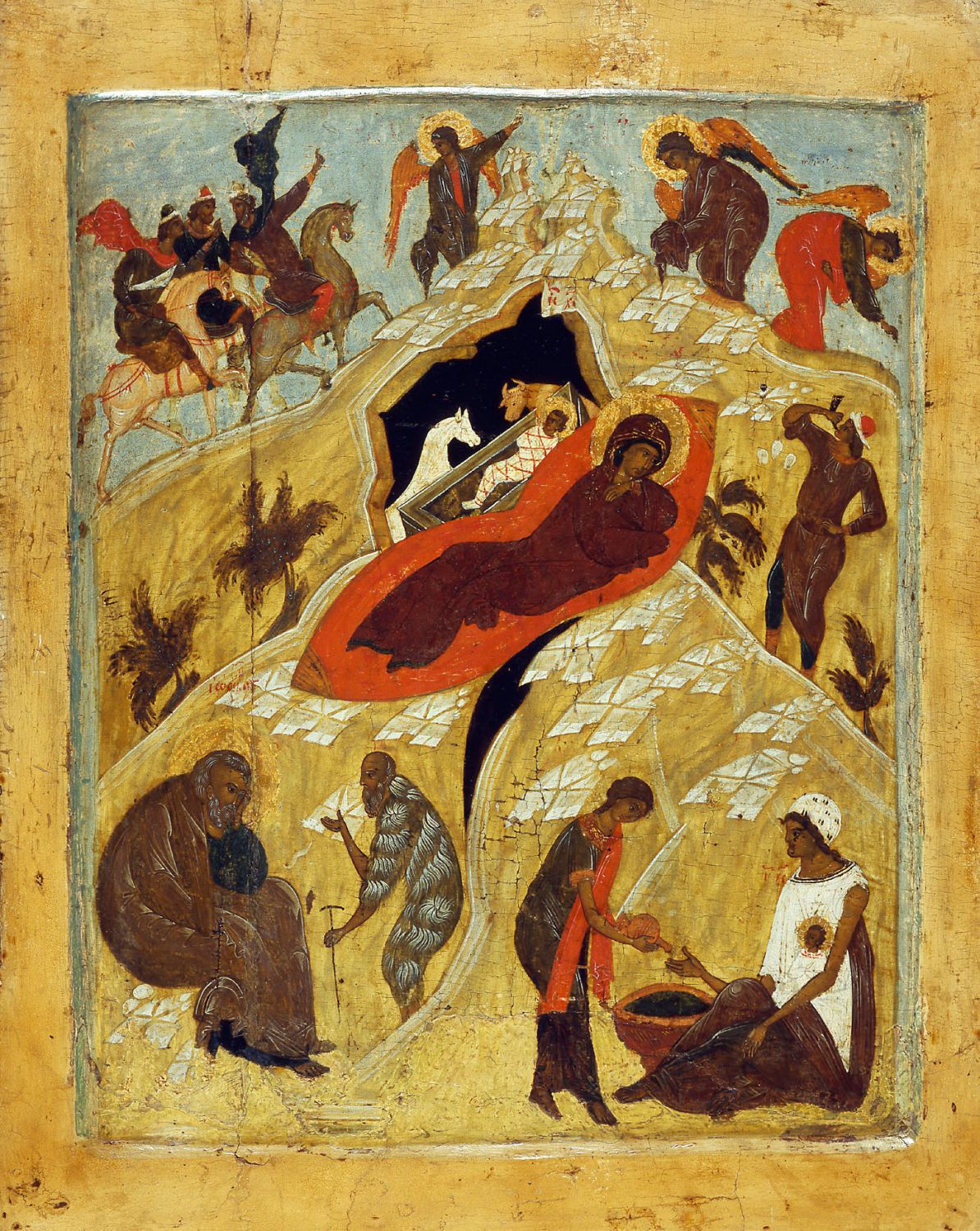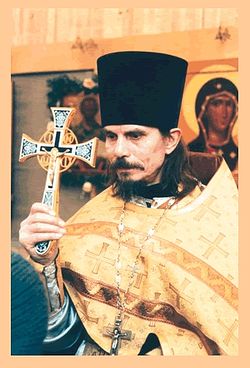Science
Weekly Diocesan Bulletin - Sunday, January 22, 2017
20. January 2017 - 18:50 Thirty-first Sunday after Pentecost; Sunday after Theophany; The Holy Martyr Polyeuctus; The Holy Hieromartyr Phillip, Metropolitan of Moscow
Thirty-first Sunday after Pentecost; Sunday after Theophany; The Holy Martyr Polyeuctus; The Holy Hieromartyr Phillip, Metropolitan of Moscow
RESURRECTIONAL TROPARION - TONE SIX: The angelic powers were at Thy tomb; and the guards became as dead men; and Mary stood by Thy grave, seeking Thy most pure Body. Thou didst capture hell, not being tempted by it. Thou didst come to the Virgin, granting life. O Lord who rose from the dead: Glory to Thee!
Weekly Diocesan Bulletin - Sunday, January 15, 2017
15. January 2017 - 16:44 Thirtieth Sunday after Pentecost;
Thirtieth Sunday after Pentecost;
Sunday before Theophany; Venerable Seraphim of Sarov;
Saint Sylvester, Bishop of Rome
RESURRECTIONAL TROPARION - TONE FIVE: Let us, the faithful, praise and worship the Word, coeternal with the Father and the Spirit, born for our salvation from the Virgin; for He willed to be lifted upon the Cross in the flesh, to endure death, and to raise the dead by His Glorious Resurrection.
The Nativity Sermon of St. John Chrysostom
8. January 2017 - 13:04 BEHOLD a new and wondrous mystery.
BEHOLD a new and wondrous mystery.
My ears resound to the Shepherd’s song, piping no soft melody, but chanting full forth a heavenly hymn. The Angels sing. The Archangels blend their voice in harmony. The Cherubim hymn their joyful praise. The Seraphim exalt His glory. All join to praise this holy feast, beholding the Godhead here on earth, and man in heaven. He Who is above, now for our redemption dwells here below; and he that was lowly is by divine mercy raised.
Bethlehem this day resembles heaven; hearing from the stars the singing of angelic voices; and in place of the sun, enfolds within itself on every side, the Sun of justice. And ask not how: for where God wills, the order of nature yields. For He willed; He had the power; He descended; He redeemed; all things yielded in obedience to God. This day He Who is, is Born; and He Who is, becomes what He was not. For when He was God, He became man; yet not departing from the Godhead that is His. Nor yet by any loss of divinity became He man, nor through increase became He God from man; but being the Word He became flesh, His nature, because of impassability, remaining unchanged.
Weekly Diocesan Bulletin - Sunday, January 8, 2017
4. January 2017 - 14:22 Twenty-Ninth Sunday after Pentecost; Sunday after Nativity: The Holy God-bearing Fathers; The Synaxis of the Most-holy Theotokos
Twenty-Ninth Sunday after Pentecost; Sunday after Nativity: The Holy God-bearing Fathers; The Synaxis of the Most-holy Theotokos
RESURRECTIONAL TROPARION - TONE FOUR:
When the women disciples of the Lord learned from the angel the joyous message of Thy Resurrection; they cast away the ancestral curse and elatedly told the apostles: Death is overthrown! Christ God is Risen, granting the world great mercy.
The Nativity of Christ in Chronology from the Creation of Man
4. January 2017 - 10:06 According to Orthodox (Byzantine) chronology, rejected by the Western church in the mid 17th century, and by the Russian Church through the reforms of Peter I in the early 18th c., the Birth of Christ took place 5508 years after the creation of “the human race”, or “world”, as Church Slavonic calls it. Professor A. P. Lopukhin in his book The Bible Story of the Old Testament noted the difficulties, but not impossibilty of restoring the chronology of the Old Testament events since Adam.
According to Orthodox (Byzantine) chronology, rejected by the Western church in the mid 17th century, and by the Russian Church through the reforms of Peter I in the early 18th c., the Birth of Christ took place 5508 years after the creation of “the human race”, or “world”, as Church Slavonic calls it. Professor A. P. Lopukhin in his book The Bible Story of the Old Testament noted the difficulties, but not impossibilty of restoring the chronology of the Old Testament events since Adam.
When and How Should We Celebrate the New Year?
2. January 2017 - 9:36 Throughout the Nativity fast, there are not a few Church feast days on which the typicon allows fish and wine. Christian love and discernment allows an Orthodox Christian to sit at the table with his friends and drink a glass of wine in the normal manner. We always serve a moleben of Thanksgiving on civil New Year's Eve, and that is the proper thing to do. Some people mistakenly believe that Orthodox Christians should not participate in this event. "That has nothing to do with us," they say. "We are on another calendar, and New Year's Day can only come according to the old calendar—that is, on January 14."
Throughout the Nativity fast, there are not a few Church feast days on which the typicon allows fish and wine. Christian love and discernment allows an Orthodox Christian to sit at the table with his friends and drink a glass of wine in the normal manner. We always serve a moleben of Thanksgiving on civil New Year's Eve, and that is the proper thing to do. Some people mistakenly believe that Orthodox Christians should not participate in this event. "That has nothing to do with us," they say. "We are on another calendar, and New Year's Day can only come according to the old calendar—that is, on January 14."
There was a time in Russia when New Year's Day was celebrated on September 1, and it coincided with the Church New Year. Even now, we begin the cycle of our Church feasts from that day. However, under Tsar Peter I, the civil New Year was transferred to January 1, as it was in Europe. In general, this date is quite relative, and in the final analysis we could choose any date at all to begin the New Year.

